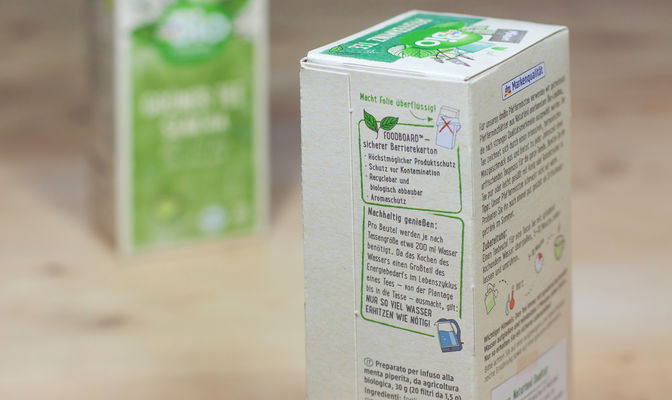Update: Regulation of food contact material
06.01.2015 - FOODBOARD™, Barriers
Regulation in the area of food contact material is continually developing: two particularly well attended conferences at the end of February and the beginning of March provided information about the current status and the latest research results from the fields of regulation, toxicology, compliance work and risk assessment.
At the fourth international Fresenius conference ‘Residues of Food Contact Materials in Food‘ from 5th to 6th March 2015 in Cologne, the lecture by Katharina Adler from the Federal Ministry of Food and Agriculture (BMEL) was anticipated with excitement. The subject of her lecture was the current status of two legal regulations which were intended to control the issue of migration from mineral oils from packaging into foodstuffs. The printing ink regulation will inhibit the future use of inks containing mineral oil for printing food packaging, while the mineral oil regulation will set maximum levels for the migration of mineral oil from and through food packaging into food. According to Adler, the final adjustments are being made to the printing ink regulation before the notification is implemented. The notes put forward from the industry and associations are being worked into the third draft of the mineral oil ordinance – a barrier for recycled cartonboard in direct contact with dry foodstuff is, according to Adler‘s statement, deemed to be given. In addition, there should be a clearer reference to cross-contamination in transport packaging.
In the status seminar ‘Minimisation of MOSH/MOAH in foodstuffs‘ by the Association of the German Confectionary Industry (BDSI) on 23rd February 2015 in Bonn, there was in particular emphasis on explanatory work on migration, cross-migration and planned legislative proposals. The lecture from one of the representatives of the Federal Ministry for Social and Consumer
protection in Saxony on the procedure for the monitoring authority in affairs of the planned mineral oil ordinance was particularly interesting. The mineral oil ordinance should restrict the ‘freedom of surveyors to give expert opinion interpretations of legal standards‘ and make them ‘legally traceably watertight‘. In focus were the inspection in regard to the use of recycled paper, packaging construction, existing barriers, the type of foodstuffs to be packed as well as the filling and storage conditions. The ‘distributor of the product‘ must ensure compliance with legal regulations and the relevant migration limit values. Afterwards, we provided information in a well-attended lecture about the use of barrier coatings to prevent mineral oil migration. With FOODBOARD™ we are offering a sustainable packaging solution with comprehensive protection of foodstuff against the migration of defined, unintended substances. This means that in the future and even already today, the targeted limits of mineral oil migration has been fully met.
Both events showed the lively interest and also the insecurity in the affected industry. While there is much awareness in the trade and therefore the corresponding guidelines of food manufactures prevail, the understanding of required action in the sweet goods industry is not always so well formed.
Both events showed the lively interest and also the insecurity in the affected industry. While there is much awareness in the trade and therefore the corresponding guidelines of food manufactures prevail, the understanding of required action in the sweet goods industry is not always so well formed.
For further information, please contact our team of experts:
FOODBOARD@mm-karton.com
Interested? Datasheet and Samples of
FOODBOARD™ can be found here:


![[Translate to English:] [Translate to English:]](/fileadmin/_processed_/9/4/csm_4_Gewinner_7ba52790a9.jpg)
